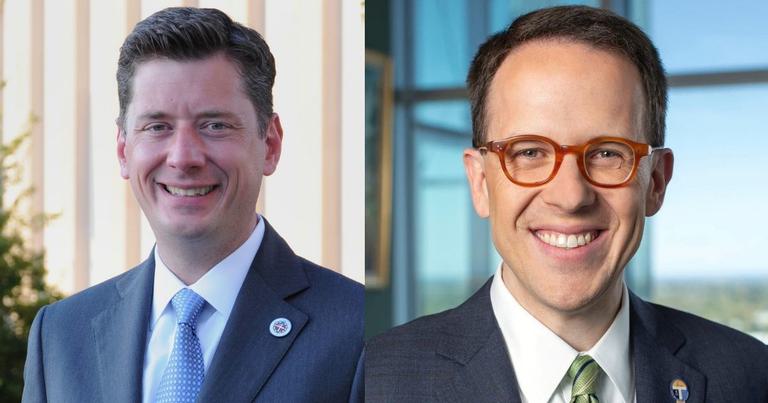
Education
Mike Brake | September 14, 2021
Holt mum on CRT in classrooms; Bynum opposed
Mike Brake
Oklahoma City Mayor David Holt did not object to a recent resolution by the United States Conference of Mayors “in support of Critical Race Theory in Public K-12 Education,” despite the fact that state law has prohibited the teaching of the controversial neo-Marxist doctrine in Oklahoma schools.
The group’s Committee on Jobs, Education, and the Workforce on August 26, in a virtual meeting made necessary by pandemic conditions, approved the resolution that states, among other aspects of the CRT doctrine, that “race is not biologically real, but it is socially constructed” and that “racism is a normal feature of society and is embedded within systems and institutions.”
The conference’s Executive Committee later rubber-stamped the resolution, though Holt, who is a member of that group, apparently dropped out of the online meeting before the vote.
HB 1775, signed into law in May by Governor Kevin Stitt, says CRT doctrines like those espoused in the Conference of Mayors resolution cannot be taught in state classrooms. Stitt noted in signing the bill that CRT is designed to further divide Americans on racial lines while it demonizes whites. The mayors’ conference resolution states that “the nation’s mayors support the implementation of CRT in the public education curriculum,” which would put it in direct opposition to state law.
The resolution was sponsored by Mayors Greg Fischer of Louisville, Lauren McLean of Boise, Lori Lightfoot of Chicago, and Ted Wheeler of Portland.
After anti-CRT journalist Chris Rufo tweeted about the resolution, the names of the four sponsors were removed from the text of the resolution on the United States Conference of Mayors website. McLean later told local media in Boise that her name had been added through “a staff error.”
The video of the 17-minute meeting of the Jobs, Education, and the Workforce Committee shows all those in attendance voting to approve the CRT resolution with no debate. Holt was not shown on the video and is not a member of the committee.
Resolutions from all of the committees were then considered by the group’s Executive Committee, where Holt is a member, on the final day of the conference. The CRT resolution was lumped into others considered by its home committee and passed without discussion or debate. Holt appeared on the video screen briefly to deliver a report from the International Affairs committee he co-chaired but vanished by the time the CRT resolution came to a vote. Most of his fellow Executive Committee members remained to address each package of resolutions presented by the individual committees.
Holt’s chief of staff and spokesman Steve Hill noted that because the conference was held virtually due to the pandemic, most mayors had limited contact with the resolution process this year.
Holt was only present virtually in his role as vice chairman of the International Affairs Committee, Hill said.
“The resolution you reference was not part of that committee’s work,” Hill said. The Mayor “is not familiar with any other resolutions and would therefore not be in a position to comment on anything beyond the scope of the International Affairs Committee.”
According to the conference website, mayors could register “no” votes on any specific resolution on a mobile app that linked them to the website, with a deadline of September 1 to make their views known.
Holt submitted “no” votes against two resolutions dealing with energy—apparently promoting radical climate change proposals—but he expressed no opposition to the CRT resolution. A small handful of mayors did submit “no” votes on Resolution 68, the pro-CRT resolution.
In contrast to Holt, Tulsa Mayor G. T. Bynum “left the U. S. Conference of Mayors last year specifically because of resolutions like this as they do not represent his views,” Michelle Brooks, Bynum’s communications director, said. “Mayor Bynum also went on record earlier this year as being opposed to the imposition of critical race theory in the classroom.”
The annual conference of the mayors was to have been held in Austin but was changed to a virtual format which allowed a relatively small number of mayors to drive the agendas of the subject-matter committees and ultimately the Executive Committee decisions approving the wide-ranging list of resolutions.
Mike Brake
Independent Journalist
Mike Brake is a journalist and writer who recently authored a centennial history of Putnam City Schools. A former reporter at The Oklahoman (his coverage of the moon landing earned a front-page byline on July 21, 1969), he served as chief writer for Gov. Frank Keating and for Lt. Gov. and Congresswoman Mary Fallin. He has also served as an adjunct instructor at OSU-OKC, and currently serves as public information officer for Oklahoma County Commissioner Brian Maughan.